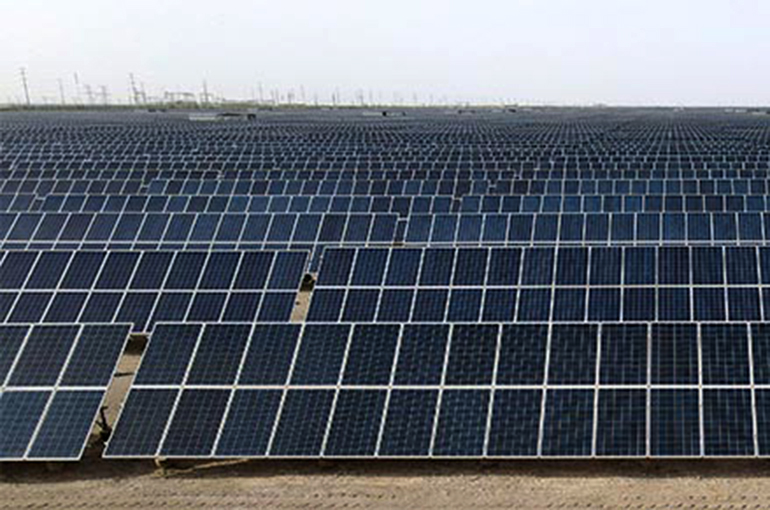 US Subsidy Cuts Push Chinese Solar Firms to Seek New Markets
US Subsidy Cuts Push Chinese Solar Firms to Seek New Markets(Yicai) July 7 -- US President Donald Trump’s "One Big Beautiful Bill" will disqualify any clean energy project involving Chinese components from receiving subsidies, hindering new investment plans and pushing Chinese solar energy firms to redirect their focus toward other markets.
The tax and spending bill, which President Trump signed into law last week, will terminate the clean energy Investment Tax Credit (ITC) and Production Tax Credit (PTC) for solar projects ahead of schedule. Subsidies will now end by the end of this year, rather than in 2032.
“For project developers relying on full tax credits, even minor delays could significantly reduce their internal rate of return,” an industry insider told Yicai. The bill bars ITC and PTC eligibility for any facility whose construction involves “material assistance” from a prohibited foreign entity, such as China or Russia.
Previously, Chinese PV companies had been leveraging local partnerships to qualify for tax credits.
An executive from Trina Solar told Yicai that the Chinese solar panel manufacturer has partnered with Austin-headquartered battery cell firm T1 Energy -- formerly known as Freyr Battery -- to recover all investment costs from its US factory. Although the reduction in subsidies will have minimal impact on Trina Solar, the company currently has no further plans to expand in the US.
Changzhou-based Trina Solar maintains its US market presence through a one-gigawatt battery cell and solar module factory in Indonesia, along with inventory stored in the US and procurement and sales through various channels.
The solar giant has been hedging against a tightening subsidy environment. Last November, Trina Solar announced it had reached an asset swap and joint operation agreement with T1 Energy, selling its 5GW module factory to the NYSE-listed peer while subscribing to 19 percent of its new shares -- a move designed to ensure stable production of Trina-branded panels in the US.
Industry peer Longi Green Energy Technology also depends on local partnerships. Chairman Zhong Baoshen noted during the firm’s third-quarter 2024 earnings call that its joint venture factory in the US is operating well, highlighting the advantages of domestic manufacturing.
Eyes on the Middle East
Analysts say that as clean energy investments in the US lose support, Chinese solar and energy storage firms should prepare in advance by diversifying their global portfolios and accelerating deployment in markets outside the US.
Indeed, many of these firms have already been expanding into new regions, particularly the Middle East.
Last July, TCL Zhonghuan partnered with Saudi Arabia’s Public Investment Fund to build a USD2.1 billion solar wafer factory in the oil-rich country -- TCL’s largest overseas wafer plant to date.
At the same time, China’s JinkoSolar joined forces with the same sovereign wealth fund to establish a 10GW solar cell and module project in Saudi Arabia, with a total investment of USD985 million.
Previously, leading solar companies including JA Solar Technology, GCL Technology Holdings, Arctech Solar Holding, and Trina Solar had all announced new production plans in the Middle East.
Editor: Emmi Laine